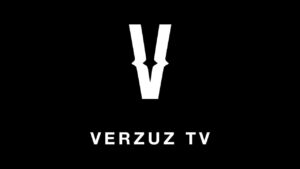“I cannot believe she took my idea!” Karen exclaimed. “I told her I wanted to use that idea to create an app that would revolutionize the makeup industry. Clients could request both a makeup artist and stylist with the push of a button,” Karen continued, as she vented to me about her friend Stacy stealing her idea.
Karen recounted that she and Stacy were at her apartment one month earlier discussing the idea over a bottle of wine. The app would allow the client to summarize the event they wished to attend, style of dress required and hairstyle desired. A virtual image would be constructed for the client’s approval and a team subsequently dispatched to the client’s home to execute the service.
Karen had successfully completed cosmetology school 5 years ago, since then she had the fabulous idea to create an app that would connect all services. Stacy was Karen’s best friend, they shared everything together since they were in kindergarten. Therefore, it was a “no-brainer” Stacy would be the person Karen confided in about her business plan.
Karen cried uncontrollably as she buried her face in her soaked handkerchief. I managed to decipher through her intermittent sobs that Stacy created the app and launched it without Karen’s knowledge. The app was called CARE which was not the name Karen envisioned but its capabilities and functions were identical.
CARE was swiftly becoming a household name. Karen discovered the app through a mutual friend who was raving to her about the service and told her Stacy was the genius behind the initiative. Karen, who had now regained her composure said she was devastated by the discovery and wanted to sue Stacy for stealing her idea.
Although Karen’s story is fictitious, I have heard many similar scenarios. In the creative industry everything is birthed by an idea. However, only the execution of that idea gives intellectual property rights to the creator.
I always empathize when the person who conceived the idea does not manifest it and has the misfortune of watching someone else bring their concept to fruition.
Therefore, to safeguard yourself against these dangers, here are some things that you can do when conceptualizing your idea:
- Put your thoughts into writing —Writing your idea manifests it into a literal work which creates copyright.
- Audio recordings can also be used as documentary evidence.
- Where applicable, sketch.
- Ensure points 1—3 are dated and time stamped.
- Do not share the mechanics of your idea during the conceptual process.
- Develop a prototype when you have completed the conceptual stage (this can be a rough draft).
- Collect everything you documented and place it into a brown envelope (include your prototype — mail separately if necessary).
- Keep your registered mail receipt.
- Do not open the sealed envelope. This is to be stored away and only used with the registered mail receipt in the future if litigation arises.
- Prepare a non-disclosure agreement or confidentiality agreement when you plan to show your work to third parties.
This list is by no means exhaustive and it may not fit neatly when every idea is born. However, the fundamental understanding that an idea without execution is unprotected, should always be noted.






